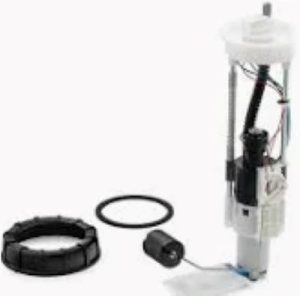The car fuel pump problems can be anything from mechanical failures to electrical issue; all of which contribute in their own negative way to the efficiency and thus performance of your vehicle. The primary problem is fuel pressure drop, which can go a little lower 40 to 60 PSI of required fuel sprayer than this engine will cause misfires on your engine or lack power or hard starting. A 20% drop in fuel pressure, for example, can make the engine lose power noticeably, and you will feel this whenever it works hard or at high speeds. This could happen because a fuel filter is clogged or there is something wrong with the fuel pressure regulator, and it results in low fuel pressure.
Or a more serious case will be the fuel pump has completely failed, hence not able to start on the vehicle! The average fuel pump lasts between 100,000 and 150,000 miles but is reduced by as much as 30% depending on external factors like fuel contamination. Fuel contaminants such as water and debris can corrode internal pump components causing the fuel pump to fail. Contamination could cause hundreds of thousands of cars and light trucks to be recalled in the US; for example, a big automaker had to recall over 150,000 vehicles because contaminated fuel pumps caused problems in 2020.
A third common reason for a fuel pump to fail is electrical problems. Virtually all fuel pumps rely on a consistent 12-volt power source, and of course, any interruption in this supply will degrade the pump's ability to do its job. Even with only a drop to 10 volts, the fuel pump may still be able to work although effectively at ~70% capacity due to low fuel flow because of the lack of voltage. Electrical faults, such as defective wiring and fuses or an inoperative fuel pump relay may play a role with this component failure and obviously should be repaired promptly when compared to the likelihood of field replacement for the pump.
Overheating is another problem which will cause the fuel pump to wear out faster. An in-tank pump is cooled by the fuel inside of a fuel tank and into where the pump uses it. Subjecting its pump to overheating on a regular basis -- which happens when you make a habit of leaving your fuel light on -- will eventually cause the pump to be less efficient, and eventual fail. One symptom of a fuel pump that is overheating regularly such is this level of heat exposure from nearly 150,000 miles worth of running takes the predicted life for this type equipment down to ~80,000 miles.rawQuery('.

Hearing a fuel pump noise may signal future problems. A properly working fuel pump will give off a quiet hum, but when it becomes noisy and whining during use, this is likely to show that the internal parts are beginning to deteriorate or a blockage filter is preventing the pump from drawing enough fuel. During 2019, thousands of vehicles were recalled due to a fuel pump that made too much noise and would later fail causing the engine to stall.
Finally, lower fuel efficiency is a consequence of fuel pump failure. On the other hand, if a vehicle that averages 30 miles per gallon (MPG) all of sudden racks up just 25 MPG, it may be because the pump is failing to deliver fuel effectively. A fuel pump at decreased capacity would force the engine to work harder than it's designed to and can result in 10 percent or more worse mileage, ultimately translating into higher fuel cost on average.
To get more information on Fuel Pump Problems And How To Solve Them Follow this link Fuel Pump.